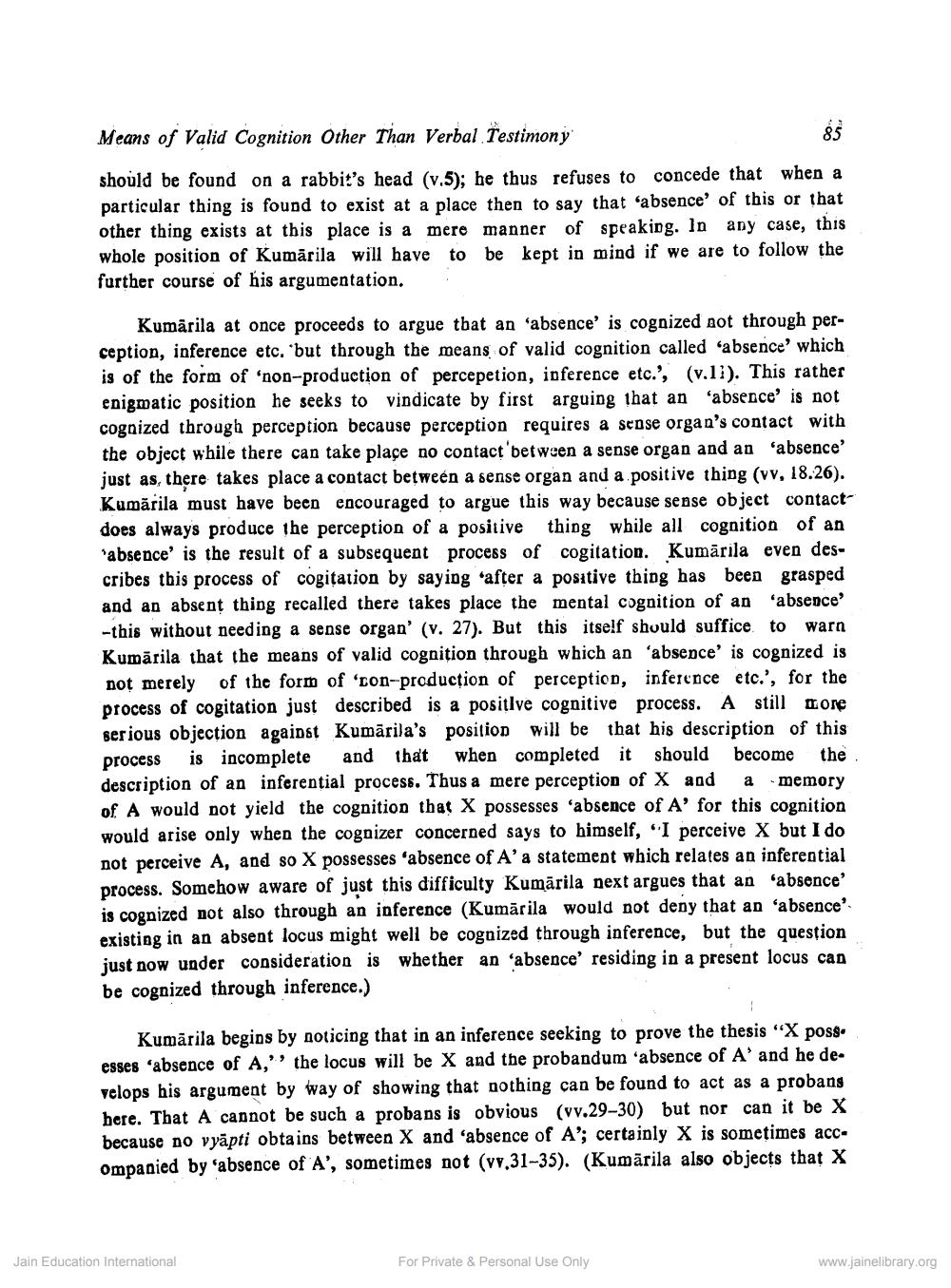________________
Means of Valid Cognition Other Than Verbal Testimony
85
should be found on a rabbit's head (v.5); he thus refuses to concede that when a particular thing is found to exist at a place then to say that 'absence of this or that other thing exists at this place is a mere manner of speaking. In any case, this whole position of Kumārila will have to be kept in mind if we are to follow the further course of his argumentation.
Kumārila at once proceeds to argue tbat an 'absence' is cognized aot through perception, inference etc. but through the means of valid cognition called 'absence which is of the form of 'non-production of percepetion, ipference etc.', (v.17). This rather enigmatic position he seeks to vindicate by first arguing that an 'absence is not cognized through perception because perception requires a sense organ's contact with the object while there can take place no contact between a sense organ and an 'absence' just as, there takes place a contact between a sense organ and a positive thing (vv, 18.26). Kumārila must have been encouraged to argue this way because sense object contact does always produce the perception of a positive thing while all cognition of an "absence' is the result of a subsequent process of cogitation. Kumärila even describes this process of cogitation by saying 'after a positive thing has been grasped and an absent thing recalled there takes place the mental cognition of an 'absence' - this without needing a sense organ' (v. 27). But this itself should suffice to warn Kumārila that the means of valid cognition through which an 'absence' is cognized is not merely of the form of 'con-production of perception, inference etc.', for the process of cogitation just described is a positlve cognitive process. A still more serious objection against Kumārila's position will be that his description of this process is incomplete and that when completed it should become the description of an inferential process. Thus a mere perception of X and a memory of. A would not yield the cognition that X possesses 'absence of A' for this cognition would arise only when the cognizer concerned says to himself, "I perceive X but I do not perceive A, and so X possesses 'absence of A'a statement which relates an inferential process. Somehow aware of just this difficulty Kumārila next argues that an 'absence' is cognized not also through an inference (Kumārila would not deny that an 'absence'. existing in an absent locus might well be cognized through inference, but the question just now under consideration is whether an 'absence' residing in a present locus can be cognized through inference.)
Kumārila begins by noticing that in an inference seeking to prove the thesis "X poss. esses 'absence of A,'' the locus will be X and the probandum 'absence of A' and he de. velops his argument by way of showing that nothing can be found to act as a probans here. That A cannot be such a probans is obvious (vv.29-30) but nor can it be X because no vyāpti obtains between X and 'absence of A'; certainly X is sometimes accOmpanied by 'absence of A', sometimes not (vv.31-35). (Kumärila also objects that X
Jain Education International
For Private & Personal Use Only
www.jainelibrary.org




